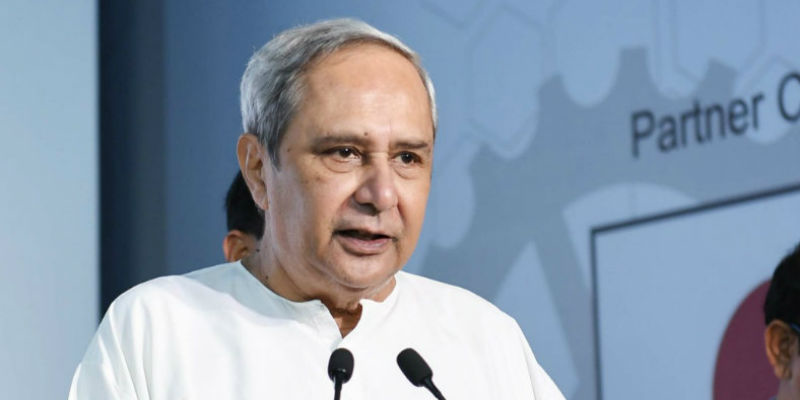‘Cryptocurrency gives people freedom and the key to their financial future’: Nicolas Cary, Founder, Blockchain.com
In an exclusive interaction with YourStory, Nicolas Cary of Blockchain.com makes a compelling case to adopt crypto assets and highlights their importance for a financially secure future devoid of transparency issues.
Nicolas Cary co-founded Blockchain.com in 2011 along with Peter Smith and Ben Reeves. They raised $70 million for the cryptocurrency wallet and blockchain solutions company from notable investors such as Google Ventures, Lakestar and Lightspeed Venture Partners, and Blockchain.com currently serves 30 million people across the world who use it to exchange cryptocurrency. Even billionaire Richard Branson is an investor in the US-UK company.
In a conversation with YourStory, Nicolas breaks down how cryptocurrencies should really work, and tells us why blockchain and cryptocurrency are the future.
Edited excerpts of the interview:

YourStory: Why did you choose to work with cryptocurrency? Take us through your journey.
Nicolas Cary: We started off with a simple idea. We wanted to make cryptocurrency easy for everyone to use. When we started working on Blockchain.com, doing basic things like making a payment using cryptocurrency was complex and intimidating. Users had to download large software packages and keep a copy of the distributed database synced to the network.
While Bitcoin had some early promise, it was never going to take off without a better user experience. A few years later, we now have 30 million people who rely on our wallets to send, receive, store and exchange cryptocurrency. We have raised over $70 million from leading investors like Lightspeed Venture Partners, Google Ventures, Lakestar, and Richard Branson. Our mission is to build an open, accessible, and fair financial future, one piece of software at a time.
YS: How does cryptocurrency work?
NC: Cryptocurrencies like Bitcoin and Ethereum rely on decentralised networks that allow users to transact directly, peer-to-peer, without a middleman to manage the exchange of information. These networks use the same pioneering technology that made Skype a household name for telephony. Thanks to these networks, it’s now possible for someone in Dubai to send money to someone in Chennai instantly, without having to wait in lines, pay large fees, or worry that the money might get locked up somewhere.
YS: What does “burning the coin” mean? One hears a lot of crypto miners and startups using this term.
NC: It’s a bit tricky to understand this without a deep explanation into the mechanics of proof-of-work and proof-of-stake cryptocurrency systems. Here’s one way to think about it: coin burn in cryptocurrency refers to sending some coins to a public address from which those particular coins can never be spent because the private keys of such an address are unobtainable or have been destroyed... think of it like throwing away the keys to a vault.
Burning coins has varying applicability depending on the crypto network but a benefit includes increasing supply scarcity. For example, if you were to take half the supply of wine in the world and pour it down the drain, wine prices would increase worldwide, because the supply has become drastically limited. The same economic principle can be programmatically designed into a currency supply.
YS: As a medium of exchange, how do you determine the value of a trade of a particular product?
NC: In order for money to be useful, it should serve as a medium of exchange and a store of value for any goods. Cash and coins are a handy medium of exchange for face-to-face transactions, but if their supply increases drastically, their purchasing power diminishes, making them less valuable. Gold, on the other hand, is a historically stable store of value; there’s a fixed amount of gold in the earth's crust and it comes into circulation at a relatively consistent rate. But using gold as a medium of exchange is very inconvenient. It’s almost impossible to pay someone in gold these days.
The price of money is determined by the same market dynamics that determine the price of all things: supply and demand. I would argue though that we need to revisit the utility of “old” money in an increasingly digital world. This is one of the reasons why cryptocurrency is so interesting. We now have a type of money that inherits the transactional ease of real-world cash, with the elemental properties of gold, ie., limited in supply and counterfeit-resistant. This is one of the reasons Bitcoin is referred to as “Digital Gold”.
Sizing the potential market for cryptocurrencies is challenging. There are varying methods for doing this. Right now the market cap is roughly $230 billion. This means that it’s larger than Twitter, Snapchat, and IBM combined. Using a displacement measurement, if cryptocurrency replaces obsolete systems like Western Union and MoneyGram, then its total worth would exceed $500 billion. But cryptocurrency will revolutionise more than just international payments; it will likely fuel entire new internet-based business models, ecommerce, asset issuance, and could begin to replace cash. As more use cases become obvious the potential for cryptocurrency expands. When money becomes digital it inherits capabilities that were historically limiting.
YS: How is a crypto exchange different from a central bank?
NC: A crypto exchange is a marketplace where people can buy and sell crypto assets. These are businesses and for-profit entities. A cryptocurrency like Bitcoin or Ethereum can be thought of as computer program that issues assets, similar in function to how a central bank issues sovereign currency, except the software rewards the participants of the network directly for helping secure and process transactions. Digital coins come into circulation on a predictable and programmatic schedule determined by the network design.
YS: How can central banks be replaced by crypto exchanges?
NC: Many central banks around the world are conducting research on cryptocurrencies to better understand their features and how they can inform the future design of money. It’s very likely that central banks will be encouraged to move in a digital direction as leading research has indicated that digital money can move around an economy more quickly than cash. Increasing monetary velocity makes economies grow, and also brings in more revenue for governments. At this point, it looks more likely that cryptocurrencies will coexist alongside central bank monies. In the future, it’s possible that a central bank would issue a sovereign crypto asset, making for a compelling value proposition that combines the trust of a central bank with the digital benefits of crypto assets.
YS: In global trade, a bank facilitates information and transactions exchange. If the crypto world replaces a bank, who regulates global trade, price, and currency movements?
NC: Financial services are highly regulated because history has taught us some very expensive lessons regarding what happens when there’s a lack of transparency between counterparties in economic transactions. Bad actors run away with funds, centralised services are prone to compromise or, worse, collusion, which will harm consumers. We trusted banks but they collapsed time and time again. The system takes hundreds of billions of dollars in fees from us and billions of people are excluded from access to basic financial tools entirely. This is the beauty of blockchain technology. Using mathematics and a distributed database, we now have a way for all people to record transactions on a global record keeping system that’s transparent, and can be used by anyone. The software is free and open source, so anyone can study how it works.
YS: What are your thoughts on the uncertainty surrounding the future of crypto assets in the world of finance?
NC: People now have a choice. They can choose control over their financial sovereignty. They can choose freedom. Cryptocurrency gives people all over the world, regardless of their origin, race, or gender, the key to their financial future.







![[Funding alert] Education startup Masai School raises $2.5M in Pre-Series A led by Unitus Ventures](https://images.yourstory.com/cs/2/e641e900925711e9926177f451727da9/Image8v90-1597724751446.jpg)



